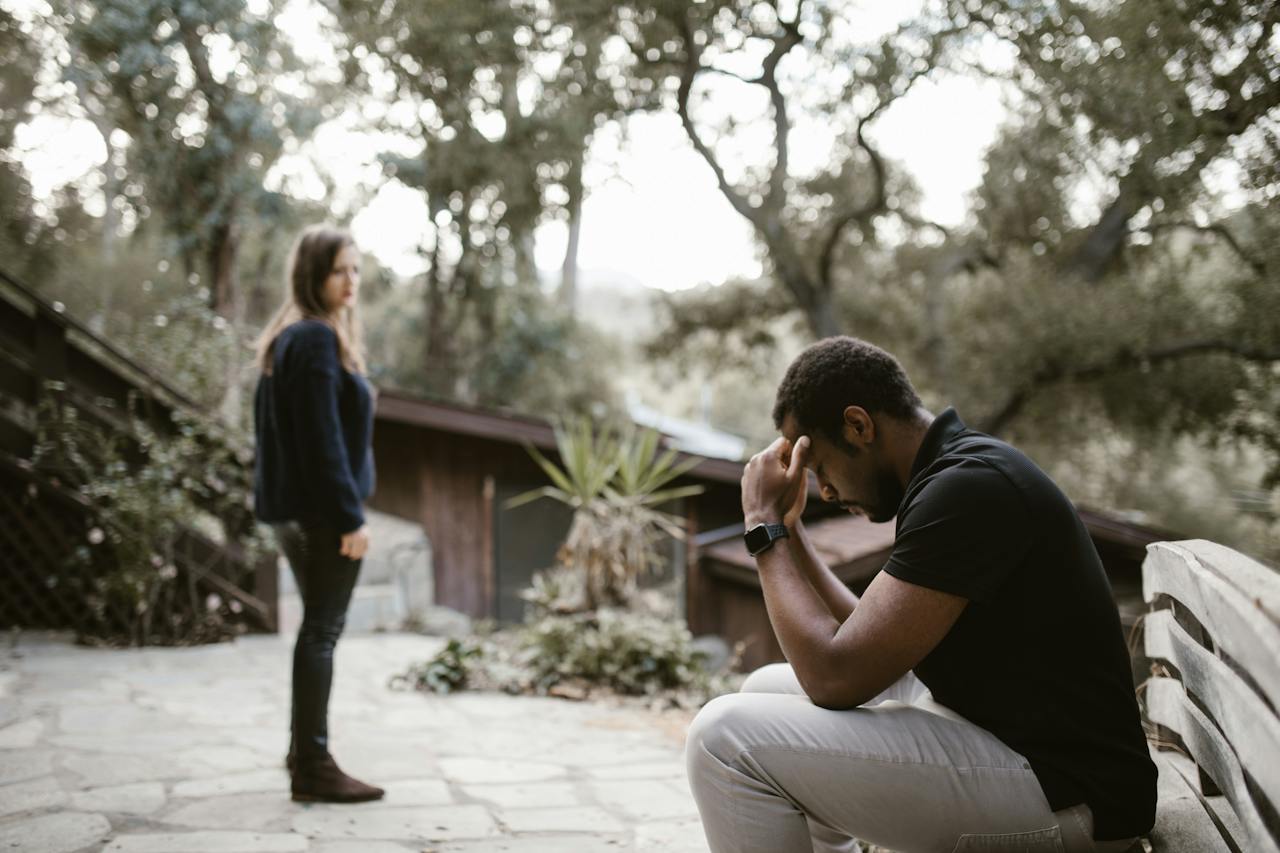
Letting go of someone you love is a painful journey of self-discovery. It entails accepting that the relationship is unhealthy, experiencing intense emotions, and gradually creating room for healing. The process might take time, but it eventually opens the door to newly discovered resilience and strength.
Letting go of someone you love can be challenging and painful, but some situations may make it necessary for both parties’ health. Even though you will always have a place in your heart for them, you must accept that this person isn’t right for you.
Accepting this means letting go and realizing that you are better off without this person having any immediate access to you, if any. Acceptance also enables you to redirect your focus and energy toward things that genuinely bring you joy and peace.
So, how do you let go of someone you love? This article will explore scenarios that may lead you to make the hard decision of letting go, its benefits, and how to let go of emotional attachment. Let’s dive in.
Circumstances When You Should Let Go
The following are circumstances when you need to swallow the bitter pill and let go of someone you love.
Unhealthy Relationship Dynamics
Ideally, a relationship should be a source of growth and support rather than an ongoing source of conflict. If the relationship has any form of abuse, whether physical, verbal, or emotional, it’s time to let go. It’s strongly advised to end toxic relationships for the sake of your mental health.
Different Priorities
Finding a spouse that shares your priorities and values is great. However, people’s objectives and life goals might vary as they mature and develop. If partners find themselves heading in divergent directions incompatible with each other’s dreams and aspirations, the best course of action is to leave.
Lack of Respect and Integrity
Everyone loves a partner who shows integrity, means what they say, and has words that match deeds. When someone consistently violates boundaries, breaks commitments, or acts harmfully despite assurances to the contrary, it can weaken the foundation of respect. In these situations, the only defense against continued suffering and disappointment can be to let go.
Unresolved Issues
Persistent, unresolved issues can create an emotional distance that becomes too wide to bridge. If attempts to communicate and resolve these issues prove fruitless, or arguments dominate your relationship, it’s time to think about ending it.
Unmet Needs
Even in cases of profound love, your partner might fail to meet your needs. If your needs are not met, be they emotional or shared values, it may be necessary to make the painful choice to let go in search of a more satisfying relationship.
Feeling Drained After Spending Time Together
Assess how your partner makes you feel. If you experience discomfort or feel exhausted after hanging out with them, they’re depleting your energy, and you need to let go.
How to Let Go of Someone You Love
Now that you know the circumstances when you should let go, here are tips on how to let go of someone you are attached to.
Control Your Emotions
It’s normal to experience extreme resentment and fury after a relationship ends, particularly if you didn’t decide to end it. Perhaps at first, you felt justified in your rage, as if it empowered you to take action.
But after a while, you realize it’s bad for you, and you find yourself unsure of how to move on from the person you love and let go of them. Such feelings and emotions can take a toll on you. Learn to control your emotions, as it might affect future relationships.
Seek Dialogue
After you’ve decided it’s time to move on, think about the best way to inform your partner. Try to initiate dialogue. It is preferable to deliver information in person if there are no safety concerns.
Reflect on the Relationship
Give the relationship some thought, examining both the positive and negative. Take some lessons and use them for your development. This introspection might offer resolution and clarity.
Practice Mindfulness
Incorporate mindfulness practices into your routine. These include deep breathing exercises and meditation. Mindfulness techniques keep you rooted in the present and help you clear your mind.
Focus on Self-Care
It is not easy to let go of a relationship and move on. Don’t be too hard on yourself. By taking care of yourself and making the most of this time to fall in love with yourself, you’ll heal faster and come out of the relationship in better health.
Engage in activities that make you relax and bring you joy. These activities include massages, exercises, or spending time with loved ones. Focus on achieving contentment without a partner.
Give Yourself Time to Heal
Even if you follow all the tips on letting go, you won’t feel better immediately. It’s normal to experience grief, and you should give yourself the space and time you need to process your feelings. It takes time to heal, and each person’s path is different. Have self-compassion and let the process of letting go happen at its own pace.
Benefits of Letting Go
Learning how to let go of love has several benefits. Let’s sample some of them.
You Rediscover Yourself
When you disentangle yourself from a toxic relationship, you get to discover that you deserve so much more. It allows you to invest and focus your energy on relationships with people who value and see your worth.
You Grow to Value Other Aspects of Your Life
Letting go helps you realize that even when things don’t work out, you have a lot of wonderful things in your life for which you should be thankful. You start to recognize other positive aspects and people in your life.
You Find Inner Peace
When you genuinely accept and let go of a loved one, you stop fighting, worrying, manipulating, and overthinking. You feel serene, at ease, and prepared for the next chapter of your life.
Conclusion
One letting go of someone you love quotes states that “it’s not easy letting go of someone you love.” It’s a painful decision, but it’s essential for both parties involved to find inner peace and move on. Letting go is not an event; it’s a process. It’s a path of healing and self-discovery. Treat yourself with compassion, and remember that overcoming this experience makes you more resilient as you seek better relationships.






